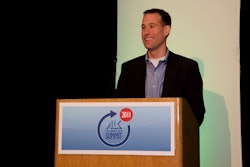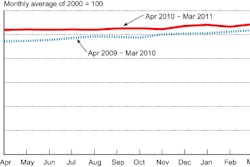The U.S. Department of Transportation on Thursday, May 12, announced the six cities where it will hold Driver Acceptance Clinics for drivers to test new technologies that will help the department learn more about how drivers respond to vehicle-to-vehicle communications that can help reduce traffic accidents and save lives. The first clinic will be held in Brooklyn, Mich., near Detroit, in August, and the remaining clinics will be held in Minneapolis, Orlando, Fla., Blacksburg, Va., Dallas and San Francisco.
The Connected Vehicle Drive Clinics are part of a DOT research program conducted by the Research and Innovative Technology Administration and the National Highway Traffic Safety Administration. DOT is working with the Crash Avoidance Metrics Partnership, a research consortium of eight automobile manufacturers, to develop technology that will help cars, trucks, buses and other vehicles avoid crashes by communicating with nearby vehicles and roadway infrastructure such as traffic signals, dangerous road segments and grade crossings. Drivers will receive safety warnings when there is a risk of a crash or other safety driving hazard.
“Connected vehicle technology has the potential to address 81 percent of all unimpaired driver related crashes,” says RITA Administrator Peter Appel. “We must take a serious look at how this technology will work in the real world to create a safer transportation system.”
The clinics will take place in urban, suburban and rural communities across the country to see if the technology is accepted by a cross-section of U.S. residents. The driver clinics will measure the acceptance by ordinary drivers of in-car collision warnings, “do not pass” alerts, warnings that a vehicle ahead has stopped suddenly and other similar safety messages. DOT also will use the clinics to test the performance of wireless safety technology, known as Dedicated Short Range Communications, in geographically diverse environments.
About 100 local drivers will be recruited for each clinic, which will take place in controlled locations. Each clinic will include about 24 cars equipped with DSRC-based safety applications. Drivers will be evaluated by researchers as they use the vehicles in a controlled environment designed to simulate real roadways and intersections. After the driver clinics are completed, DOT will deploy thousands of wirelessly-connected vehicles to test how the technology performs in a real world driving environment. The model deployment is scheduled to begin in fall 2012 at a site that will be selected through an open competition.
The Driver Acceptance Clinics and model deployment are part of a major research initiative managed by RITA’s Intelligent Transportation Systems Joint Program Office and NHTSA. Both the driver clinics and the model deployment results will help NHTSA decide, in 2013, if the technology is advanced sufficiently enough for NHTSA to begin a series of rulemakings that eventually could require manufacturers to provide vehicle-to-vehicle communications capabilities in new vehicles.
The CAMP vehicle safety consortium includes Ford Motor Co., General Motors Corp., Honda Motor Co., Hyundai Kia Automotive Group, Mercedes-Benz, Nissan Technical Center North America, Toyota Motor Corp. and Volkswagen of America Inc.












